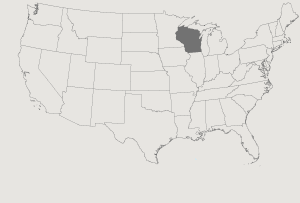Culture Native American


- African American
- Afro-Cuban
- Alaska Native
- Anglo
- Apache
- Armenian
- Asian
- Basque
- Brazilian
- Cajun
- Cambodian
- Chinese
- Chitimacha
- Cochito Pueblo
- Comanche
- Creole
- Croatian
- Crucian
- Czech
- Dakotah-Hidatsa
- Danish
- Ethiopian
- Filipino
- Finnish
- French
- German
- Ghanaian
- Greek
- Guinean
- Gypsy
- Haida
- Haitian
- Hispanic
- Hmong
- Hocak
- Hunkpapa Sioux
- Hupa-Yurok
- Inupiaq
- Iranian
- Iraqi
- Irish
- Isleño
- Italian
- Japanese
- Jewish
- Kashia Pomo
- Kiowa
- Klickitat
- Korean
- Lakota Sioux
- Laotian
- Lebanese
- Lummi
- Menominee / Potowatomi
- Mesquakie
- Mexican
- Mohawk
- Native American
- Native Hawaiian
- Navajo
- Nez Perce
- North Indian
- Norwegian
- Odawa
- Ojibwe
- Okinawan
- Omaha
- Oneida
- Osage
- Passamaquoddy
- Peruvian
- Polish
- Pontic
- Puerto Rican
- Pyramid Lake Paiute
- Sac and Fox/Pawnee
- Salish
- Santa Clara Pueblo
- Scottish
- Serbian
- Serbo-Croatian
- Shoshone
- Skagit
- Skokomish
- Slovak American
- Slovenian
- South Indian
- Swedish
- Tewa
- Tibetan
- Tidewater
- Tlingit
- Tolowa
- Trinidadian
- Ukrainian
- Vietnamese
- Wasco
- Western Mono
- Yakama-Coleville
- Yup'ik
Artist Oneida Hymn Singers of Wisconsin


- Horace P. Axtell
- Mary Holiday Black
- Lila Greengrass Blackdeer
- George Blake
- Alice New Holy Blue Legs
- Loren Bommelyn
- Bruce Caesar
- Walker Calhoun
- Helen Cordero
- Rose and Francis Cree
- Mary Louise Defender-Wilson
- Rose Frank
- Mary Mitchell Gabriel
- Sophia George
- Pat Courtney Gold
- Ulysses "Uly" Goode
- Georgia Harris
- Gerald R. Hawpetoss
- Evalena Henry
- Violet Hilbert
- Nettie Jackson
- Everett Kapayou
- Clara Neptune Keezer
- Maude Kegg
- Agnes "Oshanee" Kenmille
- Kevin Locke
- Esther Martinez
- Eva McAdams
- Nellie Star Boy Menard
- Gerald "Subiyay" Miller
- Vanessa Paukeigope Morgan
- Doc Tate Nevaquaya
- Grace Henderson Nez
- Oneida Hymn Singers of Wisconsin
- Julia Parker
- Georgeann Robinson
- Margaret Tafoya
- Ada Thomas
- Fred Tsoodle
- Chesley Goseyun Wilson
- Molly Neptune Parker
- Ralph Burns
- Pauline Hillaire
- Henry Arquette
- Yvonne Walker Keshick
- Rufus White















